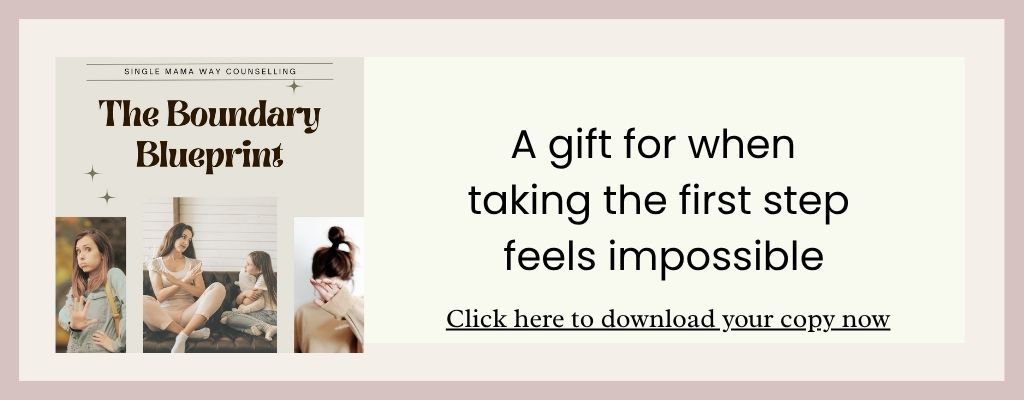

Being a single mum often means there’s always something demanding your time, energy, and emotion. When you’re constantly in giving mode, prioritising your own needs can feel selfish. But the truth is, setting self-love boundaries is one of the most empowering gifts you can offer yourself and your child.
This guide is here to make that easier. We’ll explore what self-love boundaries really are, why they matter, and practical ways to set them without guilt. Think of it as a warm, supportive chat with a friend who gets the late-night overthinking and the endless to-do list. By the end, you’ll be encouraged to create a life that’s calmer, more aligned, and deeply fulfilling—for you and your little one.
What are self-love boundaries, and why do they matter?
Boundaries aren’t walls—they’re gentle, firm lines that protect your emotional and mental health. They help you decide what’s acceptable and what’s not, ensuring your own happiness isn’t constantly pushed aside.
For single mums, boundaries are important because they allow you to prioritise what matters most: your child and your peace of mind. Think of them as an act of self-love, a way to honour your time, energy, and inner peace. Without them, it’s easy to become overwhelmed, resentful, and misaligned with your goals.

Signs you need to cultivate stronger boundaries
Sometimes the signs are subtle, but they matter. If you often say yes when you want to say no, get drained after social interactions, or notice resentment creeping in, those are prompts worth paying attention to.
Another sign is that you are uncomfortable speaking up because you are worried about someone else’s reaction. Recognising these patterns is the first step towards healing and building confidence.
The link between self-love and healthy boundaries
Setting boundaries is a reflection of self-worth. When you respect yourself, others naturally learn to respect you, too. It’s not about controlling someone else’s behaviour; it’s about clearly communicating what is acceptable for your own welfare.
Healthy boundaries are a form of self-love because they align with your values and goals. They help you cultivate resilience, embrace your authentic personality, and create a life filled with clarity and abundance.
How to set self love boundaries with balance and without guilt
Let’s be real—guilt can show up the moment you enforce a boundary. You might feel uneasy saying no or worry that you are letting someone down. But here’s a reframe: boundaries are an act of love, not rejection. They protect your mental health and strengthen connections.
Practical tip: use calm, clear language like, “I can’t take that on right now, but thank you for thinking of me.” Or, “I need some quiet time after work, so I’ll respond tomorrow.” You don’t need to over-explain. Short and firm is enough.

Examples of self-love boundaries in daily life
Boundaries may look different for everyone, but here are some simple, actionable ideas:
- Screen-free evenings to encourage more present time with your child.
- Not answering messages after 8 PM so you can prioritise rest and self-care.
- Blocking out 15 minutes of quiet for journaling or deep breathing—because you deserve that peace.
Small actions like these strengthen your emotional well-being and make daily life less overwhelming.
Emotional benefits of practising self-love boundaries
When you set boundaries, you’re not just creating limits—you’re inviting in healing and happiness. You’ll notice less stress, more clarity, and a stronger sense of self.
Boundaries give you space to connect with your child, pursue personal growth, and embrace your passions. They allow you to feel calm instead of constantly on edge, helping you model healthy behaviour for your kids. That’s empowerment at its best.
Self-love boundaries are important in relationships and family
Family dynamics can be tricky—especially with co-parents or relatives who don’t respect your space. It’s natural to feel discomfort when you start saying no. But enforcing boundaries is necessary for a fulfilling life.
If someone challenges your boundaries, respond firmly yet kindly. For example: “I appreciate your concern, but this is what works best for us.” You can stay compassionate while still honouring your needs.
How to communicate your boundaries clearly
Good boundaries only work when you communicate effectively. Use “I” statements, keep it short, and avoid vague language. For example: “I need some time to recharge after work, so I won’t be taking calls in the evening.”
Don’t over-explain or apologise—your needs are valid. Setting boundaries clearly fortifies relationships and reduces unnecessary conflict.

The final step: Overcoming fear when setting self-love boundaries
Fear is normal. You may worry about rejection, conflict, or upsetting others. But boundaries are about building confidence and protecting your mental health.
Start small. Set one simple boundary and stick with it. Each time you do, you become more resilient. Remember: every move is a form of self-love—and that love ripples through to your child, too.
Conclusion: Setting self-love boundaries is a form of self-care
Setting boundaries isn’t selfish but essential. As single mums, we often feel the pressure to do it all, but creating limits is what helps us show up better for the people we love most. Every boundary you set shows how you take care of your emotional and physical well-being, embrace your authentic self, and create a peaceful life.
From my own experience, I remember being deeply uncomfortable the first time I said no to unsolicited advice. But that moment was a turning point. It showed me that boundaries don’t break relationships—they fortify them. As I model healthy boundaries for my daughter, I know I’m teaching her something invaluable: that self-worth and self-love are essential.

Share:
Read Next


Self-Love on Valentine’s Day: New Confidence After Separation

